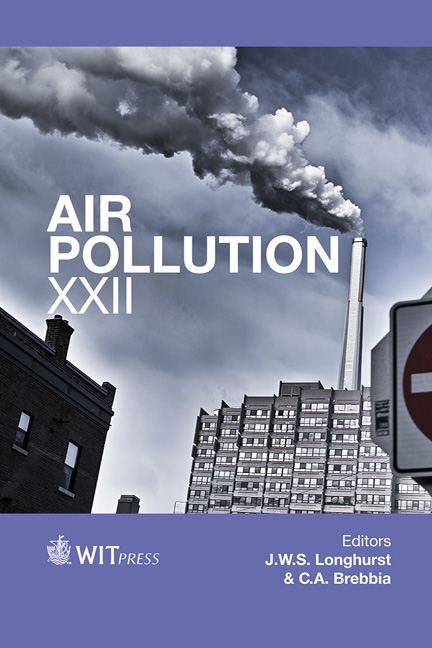Diesel PM Collection For Marine Emission Using Hole-type Electrostatic Precipitators
Price
Free (open access)
Transaction
Volume
183
Pages
11
Page Range
145 - 155
Published
2014
Size
632 kb
Paper DOI
10.2495/AIR140121
Copyright
WIT Press
Author(s)
Y. Ehara, A. Osako, A. Zukeran, K. Kawakami & T. Inui
Abstract
The particulate matters (PMs) emitted from marine diesel engine exhaust during the combustion process have low resistivity and extremely small in the range of 70–120nm. These particles have various human health and environment impacts. After MARPOL 73/78 Annex VI entered into force on 1st of July 2010, shipping-induced NOx and SOx, PM emissions are regulated more strictly. The diesel particulate filter was widely used for the collection of automobile diesel PM but was not economical, especially for the use of marine engine emission control where PM concentration is as high as 50 mg/m3. Electrostatic Precipitators (ESPs) have been studied as an after treatment system for the removal of PM emissions from a diesel engine. However, the collection of low resistive particles using conventional ESPs is difficult. The low resistive diesel engine particles are detached from the collection plate, which causes particle reentrainment, resulting in poor collection efficiency. The new hole-type ESP was developed to minimize re-entrainment. The hole-type ESP utilizes the ionic wind, combined with electrostatic force to transport the charged particles effectively into the collecting zone through the hole of the collection plate. The collecting zones are designed as zero electrostatic fields, i.e., no electrostatic repulsion force acting on particles by induction charge, so that no re-entrainment takes place. The hole diameter with respect to aperture ratio influences the particle collection processes. The optimum hole diameter was determined by the time-dependent collection efficiency. Keywords: particulate matters, diesel engine exhaust, electrostatic precipitator, re-entrainment. Air Pollution XXII 145 www.witpress.com, ISSN 1743-3541 (on-line) WIT Transactions on Ecology and The Environment, Vol 183, © 2014 WIT Press doi:
Keywords
particulate matters, diesel engine exhaust, electrostatic precipitator, re-entrainment





